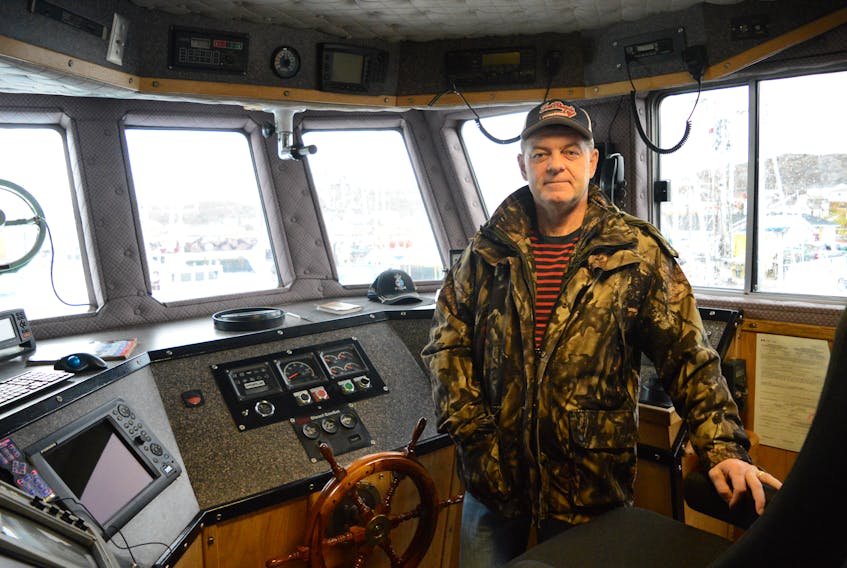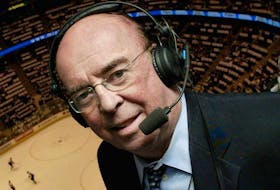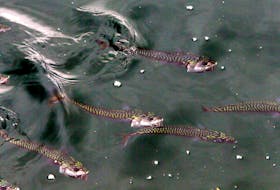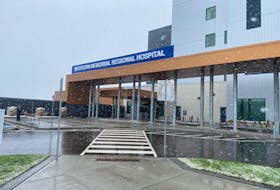TWILLINGATE, N.L.
After the fall fishery lost half their quota and their final week on the water, some cod harvesters with newly-installed autoline jiggers are looking to form a committee.
As a result of these cuts, Derek Bath, who personally invested over $100,000 to install this system, did not have the chance to fish with it this year.
In January, the Twillingate fisherman was one of eight harvesters awarded funding from the Atlantic Fisheries Fund. Over $600,000 in federal and provincial money was announced for the installation of automated long liner hauler systems on vessels across the province.
This automated system, often referred to as autoline jiggers, is the standard practice in the cod fisheries of Iceland and Norway, and is renowned for its ability to both efficiently catch fish and produce a high-quality product
It was this push for quality catch and the talk of a rebounding cod fishery that led harvesters like Bath to invest in this new technology. But now, harvesters who have invested and geared up with the most modern and efficient cod-catching equipment are upset their time on the water has been cut short.
“That was the encouragement we had from all the powers that be, this will get us the best quality fish,” said Bath. “It’s a big investment to make. But if they shut it down and we lose our chance to fish, what’s the point?”

Committee prospects
On Oct. 16, the Department of Fisheries and Oceans (DFO) announced a reduction in quota for the fall fishery to 3,500 pounds a week, down from the initial 7,000 lbs a week. Then, DFO closed the fishery a week early on Oct. 27.
Bath says with the time and money he invested into this automated system, these cuts were a considerable blow to his enterprise.
“With the time it took to install the gear, and then we burned a lot of fuel just experimenting and learning how it all works, it was really only those last two weeks we were hoping to get in some good fishing,” said Bath. “We waited all summer for the fall fishery but when the quota was cut in half it was not feasible to go out.”
Because of additional delays with rough weather and steering issues, outside of initial tests, Bath and his crew did not use their autoline jiggers to fish this year.
He is now speaking with other harvesters who bought into this technology in hopes of forming their own committee. Bath hopes to put more pressure on protecting the fall fishery and encourage other changes that will better benefit the growing number of the province’s hook and line harvesters.
Lee Melindy of Lumsden also installed autoline jiggers on his boat this fall. He agrees a committee should be formed now that this new style of fishing is on the rise.
“I said the same thing as Derek, it’s time to get a hook and line committee together because there is enough of us now,” said Melindy. “For us, to get involved with the fall fishery you need some kind of an incentive. You got everything working against you, especially with the weather and the wind.”
Inshore director with the Fish, Food and Allied Workers Union (FFAW) Bill Broderick says this reduction was an upset across the inshore fishery. Broderick does not agree with DFO’s decision, saying this decision is the result of strong catch rates against an unnecessarily low quota.
“The quota was small but the fish was there and it was caught so fast they had to cut it,” Broderick said. “We understand they can’t let us fish over the quota, but we shouldn’t have had such a reduction this year to begin with.”
In an emailed response from DFO, the department stated that adjustments had to be made throughout the season due to the higher than anticipated landings of cod this year. As of Oct. 25, 98 per cent of the catch limit (9,500 tons) had been reached and therefore the fishery was closed early on Oct. 27.
As the assessment of cod stocks by DFO begins again this winter, Broderick encouraged committees to get involved with FFAW efforts to put pressure on DFO for more accurate science and better quota for harvesters.

Hopes for the future
Although he only had four weeks at the fishery this year, Melindy says the autoline jigger proved to be an excellent way of catching fish. The automated system baits the hook, shoots it into the water and brings the fish up onto a conveyer that unhooks it as well.
“There’s no work to it, the only work to your fish is cleaning it and putting it away,” he said. “The last set we did we shot off 1,400 hooks and an hour later we ended up with more than 2,000 pounds of fish.
“The old man was there and he’s a gillnetter to the bone. For him to say it’s a good way to catch a bit of fish than it’s got to be.”
Because of the rough weather during the autumn months, Bath says one thing he’d like to fight for with a hook and line committee is a quota set per boat, rather than the current system of weekly quotas.
“With the winds you get in the fall, you can’t haul in that kind of weather. You might lose an entire week of fishing sometimes,” he said. “If we had a boat quota then the few good days you get you can really push to catch as much as you can.”
Bath has also engaged in conversations with the FFAW regarding the proposed committee. He says nothing is official yet, but he is hoping there will be a hook and line committee in place for early next year.
Like all cod harvesters, Bath is also hoping the quota to catch will be much higher next year, and that the talk of a rebounding cod fishery will prove true.
“We’re ready for next year is the main thing. It’s all bought and paid for, we know how to install the gear and what to do with it,” he said. “Hopefully next year we’ll be successful.”
- Want in on the debate?
- Write us a letter to the editor and email it to [email protected]. Be sure to include a name, address and daytime telephone number where the author can be contacted. Letters should be no more than 300 words.









